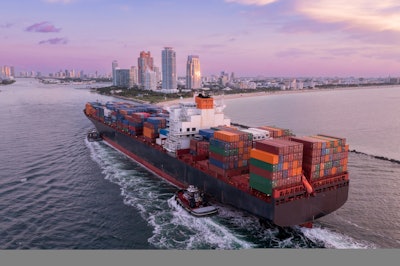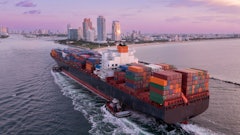
Florida’s 16 public seaports are playing an outsized role in the state’s supply chain, particularly when it comes to ensuring Floridians have access to critical commodities like food, fuel and healthcare supplies, according to a new report by the Florida Ports Council.
Further, new economic data from the Florida Department of Transportation (FDOT) shows that maritime activity at Florida’s seaports represents 12.2% of the state’s $1.6 trillion GDP.
“As Florida’s population continues growing, robust investments in seaport infrastructure is essential for maintaining a strong supply chain. Modern ports, combined with our efficient operations, enables smooth cargo movement, while also minimizing delays and disruptions in the delivery of goods supporting Florida’s economic stability,” says Mike Rubin, CEO and president, Florida Ports Council.
Key takeaways;
- Imports $32.6 billion in petroleum products and aviation fuel – Florida’s largest import category.
- Imports and exports a combined $9.9 billion in food, vegetables and perishables.
- Imports $1.5 billion in medical equipment and pharmaceuticals.
- Imports $1.1 billion in furnishings, which is particularly important as businesses and homeowners recover from the devasting 2024 hurricanes.
- Imports $600 million in cement and aggregate to help meet the state’s Moving Florida Forward infrastructure initiate.
- Maritime activity at Florida’s seaports also contributes $196 billion to Florida’s economy; creates 1.2 million jobs for Floridians; and contributes $7.4 billion in state and local taxes.















![Pros To Know 2026 [color]](https://img.sdcexec.com/mindful/acbm/workspaces/default/uploads/2025/08/prostoknow-2026-color.mduFvhpgMk.png?ar=16%3A9&auto=format%2Ccompress&bg=fff&fill-color=fff&fit=fill&h=135&q=70&w=240)


